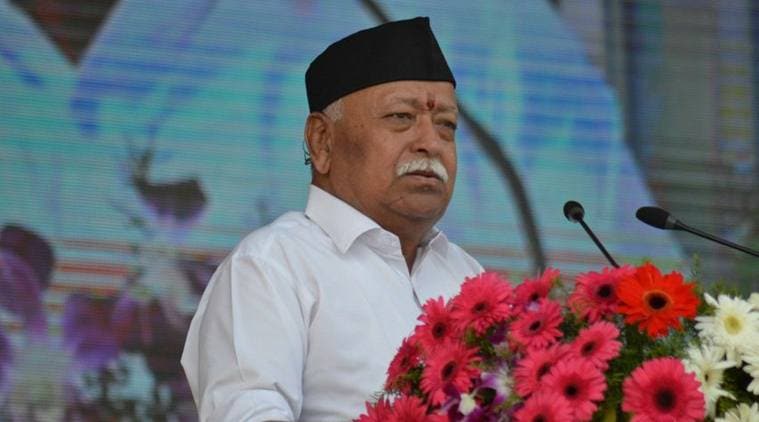RSS chief Mohan Bhagwat has a question troubling him which he wants debated. He asked the question at the time of the Bihar elections four years ago. It embarrassed the BJP then and he had to keep quiet. But he has raised it again. It is a question which is at the heart of the […]
RSS chief Mohan Bhagwat has a question troubling him which he wants debated. He asked the question at the time of the Bihar elections four years ago. It embarrassed the BJP then and he had to keep quiet. But he has raised it again. It is a question which is at the heart of the RSS and its vision for the future of India. Only someone not in electoral politics can raise such a question. It deserves a serious debate.
Bhagwat asks how long should the SC/ST reservations last? Of course, these reservations were put in the Constitution for a 15-year period initially. The view was that the historic disadvantages visited upon the SC/ST people over millennia deserved to be corrected. A period of 15 years must have seemed sufficient in those hopeful days when, on the threshold of freedom, people believed that independent India will achieve economic miracles once foreign rule had ended. Alas, decades of slow growth made reservations unremovable.
The expression ‘Scheduled’ is because at the end of the Round Table Conferences held in early 1930s, the British government published a White Paper in which they listed in an Appendix (Schedule) the castes and tribes of India which were to get special treatment as and when Dominion Status was granted. This was a victory for B R Ambedkar who had worked relentlessly to win concessions for Dalits.
But there is a fundamental problem in any Constitution which treats all citizens as equal but has to push Affirmative Action for some subgroup of the population — Black Americans in the US and SC/ STs in India. Bhagwat’s dream for the ideal Hindu Rashtra wishes to treat all those who reside in the land of the Indus — call them Hindis (defined as including Muslims, unlike V D Savarkar’s definition) — as equal. Leaving Muslims aside, the basic contradiction is between the ideal of equality among Hindus and the facts of the hierarchical social structure of Hindu society. To make matters worse, since the Mandal Report commissioned by the Janata government of 1977-80 (which included the Jana Sangh), these hierarchical inequalities have been valorised by OBC reservations. It is not just the SC/STs but the 7,000 jaatis who claim inequality and want to preserve reservations.
Bhagwat wishes all reservations would wither away and Hindus could be a single people. He knows it cannot happen yet but he wants to pose the question of equality versus entrenched reservations. This is what he wants to discuss. At what stage of prosperity can India give up reservations? After all, other democratic societies have income and class inequalities but do not require affirmative action. Why not India?
But if being Hindu requires everyone to have a caste identity, then hierarchy is ineradicable in a Hindu nation. Hindu Rashtra has to be fundamentally socially unequal or it is not Hindu. Separate cells each for the 7,000 jaatis define a Hindu society. Bhagwat knows this difficulty. The RSS has always wanted to unite Hindus into a single mass, overcoming caste divisions which are social not religious. No matter how prosperous India becomes, social hierarchy is likely to remain. Can Hindu society have jaatis without hierarchy? Can caste divisions be horizontal not vertical?
Bhagwat deserves a debate and an answer.
Source: Read Full Article


